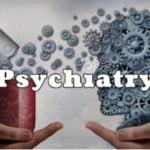by Michael Miletic, M.D.
Ketamine has reached the medical mainstream, but the majority of ketamine use seems to ignore its true power. Too often it’s use is as a stand-alone therapy, available orally, intra-nasally, by IM or IV. Users often report a respite from some mental health symptoms, yet this is a short acting ‘legalized high’. Once again, the medical community is reverting to its habit of looking for the ‘magic pill’ solution where the patient is passive and the profits are vast. Rather than seeking a cure (which ends the revenue stream), let’s just invite the patient to get on a never ending cycle of medication and brief office visits.
Do I sound bitter? Maybe I am. I’ve treated too many patients who’ve been on this merry go round for years without real progress. I see real potential when Ketamine is done right, and I don’t want to see it relegated to the ever growing pile of “somewhat effective” medications.
This is what “done right” means in my experience. Ketamine does inhibit NMDA receptors, but also has powerful effects on multiple neurotransmitters, neural circuits, and stimulates estrogen receptors. It is this latter effect, once fully employed in Ketamine Assisted Psychotherapy, that can produce profound and potentially permanent changes. Both patient and doctor must be highly committed and ready to dig in. Ketamine Assisted Psychotherapy is intensive, demanding and rewarding to both patient and therapist. Set and setting considerations provide a haven or “holding environment” (Winnicott). Highly skilled practitioners create the unbreakable trust at the heart of trauma psychotherapy (Van Der Kolk, Mate). Attachment wounds begin to be healed in a reliable and compassionate environment (Bowlby).
And then, the hard work begins. The patient and therapist join in an emotionally intimate journey to understand the unconscious, from the pain and sorrows that grip their lives, to the joys and beauties that are possible. Both hard and heartfelt, there is no shortcut to releasing the patient from the prison of depression and anxiety.
To learn more about Ketamine Assisted Psychotherapy, please arrange a consultation with our Nurse Practitioner, Kim Erison. She will answer all your questions and help you know if you are a good candidate for this treatment. To schedule, call (248) 593-8540.



